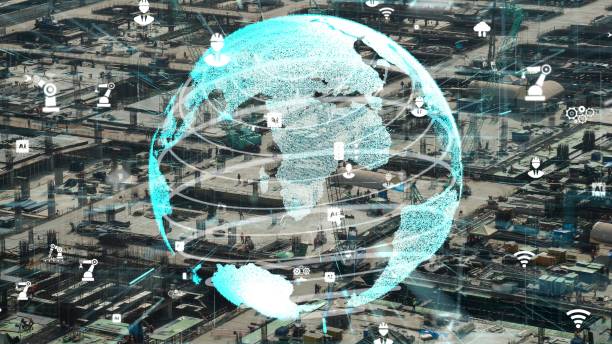Global power dynamics are undergoing a significant transformation, with technology playing a pivotal role in this shift. As nations vie for dominance, the traditional military and economic strength elements are now being redefined by advancements in artificial intelligence (AI), cyber capabilities, and other emerging technologies. These innovations are reshaping how nations build alliances, making it clear that technological superiority is becoming just as important, if not more so, than traditional factors like geography or economic size. The nations that can effectively leverage technology in their strategic partnerships will likely be the ones to maintain or rise to power in the future.
Historical Context of Global Power
Historically, global power has been determined by military strength, economic prowess, and geographic influence. Nations with vast armies, large economies, or strategic locations have traditionally been at the forefront of global politics. However, the 21st century has brought about a shift where technological advancements have begun to level the playing field. Small nations with superior tech capabilities can now exert influence previously reserved for superpowers.
In the past, countries formed alliances based on shared interests, often related to mutual defense or economic cooperation. For example, NATO’s foundation was rooted in collective security against a common threat. However, today, technology is emerging as a new driving force behind alliances. States that possess cutting-edge technological capabilities are becoming more attractive as allies, and alliances are increasingly based on shared technological goals and cybersecurity concerns.
How Technology is Shaping Modern Alliances
The rise of new technologies, such as AI, quantum computing, and cyber warfare tools, is fundamentally altering how nations approach diplomacy and alliances. These innovations allow for new forms of collaboration while also presenting new threats. In many cases, countries are entering into agreements to jointly develop or share these technologies, understanding that falling behind in tech innovation could mean losing influence on the world stage.
Global power is now increasingly tied to technological prowess. Nations that lead in AI and cyber capabilities, for example, can dominate not only in military terms but also economically and politically. As a result, we see tech-driven alliances emerging, such as the U.S. partnership with Japan and South Korea on semiconductor technology, or China and Russia’s cooperation on cyber warfare.
This trend shows that alliances are no longer just about defense; they’re also about innovation. Nations need partners who can help them stay competitive in the race for technological superiority. This has led to new types of alliances, where technological research, cybersecurity, and data sharing are critical components.
Impact of AI and Cybersecurity on Global Power
Artificial intelligence is perhaps the most disruptive technology shaping the future of global power. Its applications are endless, from military strategy to economic management. Countries that invest heavily in AI research and development are positioning themselves as future global leaders. However, with AI also comes a new set of vulnerabilities, particularly in the form of cybersecurity threats.
As AI systems become more integrated into national defense and economic systems, they also become targets for cyberattacks. This creates an urgent need for nations to form alliances centered around cybersecurity. For instance, the European Union has placed a strong emphasis on building cyber defense capabilities and working with other nations to protect critical infrastructure from attacks.
In addition to cybersecurity, AI is also influencing alliances in economic sectors. Nations that lead in AI development can dictate the rules of global trade and innovation. This is why we see countries like China and the United States pouring resources into AI, not just to maintain military dominance but to control the future of global commerce.
Technology’s Role in Shaping Military Alliances
The future of military alliances is also being shaped by technological advancements. The traditional model of mutual defense treaties is evolving to include collaboration on advanced weaponry, intelligence, and data sharing. Modern warfare is increasingly fought in the digital space, and nations are forming alliances to share the technologies that will determine victory in future conflicts.
For instance, NATO’s focus has shifted from merely military defense to incorporating cyber defense and space technologies. The recent creation of the NATO Cyber Defense Center of Excellence highlights how essential technology has become to maintaining global power. Military alliances now require technological cooperation to stay relevant in the rapidly evolving landscape of warfare.
This shift is evident in the formation of new tech-based alliances between countries with advanced military technologies. For example, the United States, India, Australia, and Japan have formed the Quad Alliance, which focuses not only on military cooperation but also on technological collaboration in AI and quantum computing. These new types of alliances will be crucial to determining the balance of global power in the coming decades.
Role of Tech Superpowers in Reshaping Global Influence
Countries like China and the United States are leading the charge in shaping the future of global power through technology. China’s Belt and Road Initiative, for example, extends beyond traditional infrastructure development to include digital infrastructure projects like 5G networks, AI research centers, and cybersecurity collaborations. By exporting its technological prowess, China is forging new alliances and expanding its global influence.
The United States, on the other hand, continues to build alliances based on technological innovation, particularly in areas like AI, cybersecurity, and space exploration. The partnerships the U.S. forms around these technologies are key to maintaining its global influence.
The novel Above Scorched Skies Novel explores many of these themes, providing a glimpse into a future where global power is no longer solely defined by military might but by technological dominance. The book underscores how technology will reshape global alliances, creating new power dynamics and geopolitical landscapes. It offers readers a thought-provoking look at how future wars may be fought not only on battlefields but in cyberspace and through technological innovation.
Summary
In conclusion, the future of global power will be defined by technology. As nations race to develop AI, quantum computing, and cybersecurity capabilities, the alliances they form will be critical to maintaining influence and stability. These partnerships will go beyond military and economic cooperation to include technological collaboration, shaping the geopolitical landscape in ways that were unimaginable just a few decades ago.
The countries that can stay ahead in the technological race will hold the reins of global power, while those that fall behind will risk losing influence. The emerging tech-driven alliances we see today are just the beginning, and the future will see even more complex partnerships formed around the shared pursuit of technological dominance. Whether through military or economic means, technology will be the key to shaping the global power structures of tomorrow.



